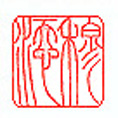— go back one page
— go back to list of extracts
— skip to next extract

Antinoē acknowledged these fulsome thanks with a courteous gesture. But she said: ‘No, I shall return to Italy as soon as possible. But this evening at least, we shall go on helping the wounded so long as we can, and as best we can.’
The young man, who was perhaps to be the new ruler in Thebes, bowed. ‘You must follow your way. But let me say, Antinoē, that you are honoured in Thebes, and will always be welcome, as will your companions, Crito and Philodemus.’
He had done his homework. He knew our names. The three of us turned to a new task of triage. But by now, many victims would have died from loss of blood, and we would have less to offer to the survivors than earlier in the day. We were exhausted.
An old lady ran up: ‘My lord, Mistress, Master,’ she addressed us breathlessly. ‘You have been so good to us. But could you come to see my grand-daughter? She seemed to be on the road to recovery after your treatment, but now she is having difficulty in breathing.’
We followed the lady. The little girl was lying still, and indeed breathing with great difficulty. I lifted the compress over the wound on her right side. I said to Antinoē: ‘The wound looks all right. But I think she may have internal bleeding.’ Antinoē nodded. ‘Philodemus,’ I said, ‘help me, very gently, to put her on her side.’ We did that. Then I took a sharp and narrow instrument, dipped it in the boiling water which the family still had ready. I said to the family: ‘Please look away,’ which most of them did.
Then I plunged the point through the little girl’s rib-cage towards her lungs. Blood dripped down quite copiously into a vessel which Antinoē had placed below.
(5/6)